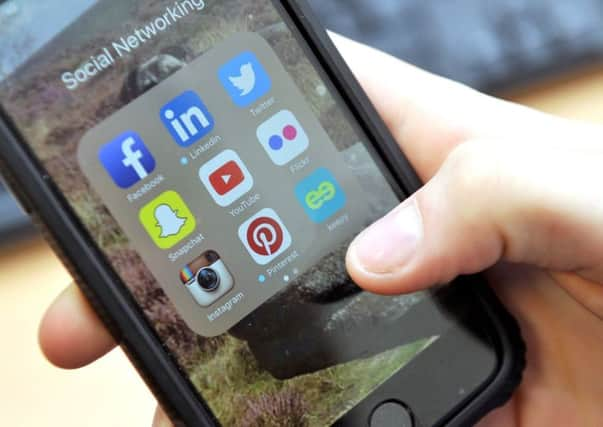Social media is no '˜silver bullet' for loneliness


Researchers from Brigham Young University in Utah, in the United States, examined over 200 studies into the health effects of loneliness and also found it could be deadlier than obesity.
The Yorkshire Post has been campaigning to raise awareness of the health risks of loneliness and social isolation, which can be as damaging as smoking 15 cigarettes a day and can contribute to dementia and high blood pressure, since February 2014.
Advertisement
Hide AdAdvertisement
Hide AdFurther research out this week by Dr Mark Winwood, director of psychological services for AXA PPP healthcare, showed that loneliness is not restricted to the older generations, with a third of 18-to-24 year-olds saying they feel lonely and have no-one talk to all or most of the time.
He said setting out on your own and long working hours can mean you are never too young to experience loneliness. And these feelings of isolation could even by accentuated by social media - rather than making you feel more connected to people around you.
Dr Winwood said: “Social media is a ‘false reality’. It’s not a true reflection of how people are actually living their lives or feeling inside.
“Yet it can lead to the perception that everyone else is having a great time – and you’re left out. But you can be surrounded by people or by Facebook friends and still feel lonely.”
Advertisement
Hide AdAdvertisement
Hide AdRecent figures released by the Office for National Statistics showed that older people are “embracing” smart and social technology, with recent internet use among women aged 75 and over almost trebling since 2011. Last year, four in ten over 75s had a social media profile, compared to less than a fifth per cent in 2015.
And while technology can be a help to some older people experiencing loneliness, the uptake in social media in older generations can lead to “superficial” connections, the Campaign to End Loneliness, partners in the YP’s Loneliness: The Hidden Epidemic campaign, said.
Sam Dick, director of campaigns, policy and research at the charity said loneliness and social isolation reminded a “huge problem” among older people.
He said: “There are 1.1 million chronically lonely older people in the UK who are isolated and not able to make meaningful connections with other people. We have to tackle this.
Advertisement
Hide AdAdvertisement
Hide Ad“Older people are embracing smart and social technology but social media is not a silver bullet. Not only are just 41 per cent of people aged over 75 recent internet users, compared with 99 per cent of people aged 16 to 34, but often the connections we make online are superficial.
“For our society to become less isolated and alone we need to make deep and meaningful connections in person. Having a conversation and feeling part of a community can make a huge difference to the life of a lonely person.
“Social media might make it easier to find places to find company but we still need to do more to connect people in their communities, and provide support and services in real life. Put simply, if you know an older person who is lonely, don’t tweet them, talk to them.”
The Campaign to End Loneliness has called for the development of a UK-wide strategy for tackling loneliness and social isolation.